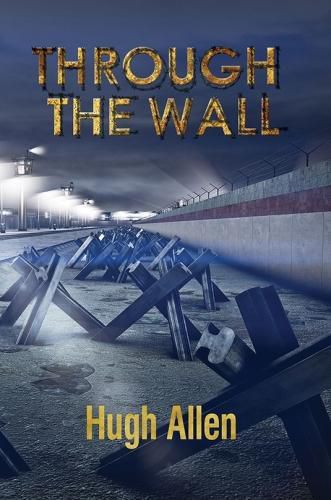Readings Newsletter
Become a Readings Member to make your shopping experience even easier.
Sign in or sign up for free!
You’re not far away from qualifying for FREE standard shipping within Australia
You’ve qualified for FREE standard shipping within Australia
The cart is loading…






This title is printed to order. This book may have been self-published. If so, we cannot guarantee the quality of the content. In the main most books will have gone through the editing process however some may not. We therefore suggest that you be aware of this before ordering this book. If in doubt check either the author or publisher’s details as we are unable to accept any returns unless they are faulty. Please contact us if you have any questions.
The Berlin Wall. You may know of it. You may remember it; perhaps as a witness, an observer, a student of history, or a member of the armed forces. Whether it was local or in another country, its impact touched everyone, some in variable ways. In Hugh Allen’s Through the Wall, we are shown two vastly different, but equally intriguing and moving personal histories of the barrier in Germany after World War II. In the West, we meet a young English boy, Hugh, with a fondness for adventure. In the East, we follow Hans Bernauer, from a tragic childhood to his early adulthood. These two individuals recount their experiences around the erection of the wall, with a common factor that ties them together, a model of a Sopwith Camel biplane. From the terrible loss of his Jewish parents, Hans is raised in fear and poverty, and with hopes for a better life. Later, as a member of the People’s Police, the Vopos, he struggles with the ethics and morals of his position, and the situation his family and people are trapped in. On the other side, as a son of a British government employee, Hugh battles boredom and peer pressure, both forces which bring him to find a hidden treasure in a ruined house, and accidentally to cross the wall to the East. With touching and moving sentiment, we can experience Hans’s pain and hunger, Hugh’s worry and excitement. With direct and pointed description, we can see the ruin, filth, and destruction after the war, and we can hear the grumblings, and praise of Berliners after Hitler was killed. Through the Wall is an intriguing tale with an end that will capture the curiosity of every reader.
$9.00 standard shipping within Australia
FREE standard shipping within Australia for orders over $100.00
Express & International shipping calculated at checkout
This title is printed to order. This book may have been self-published. If so, we cannot guarantee the quality of the content. In the main most books will have gone through the editing process however some may not. We therefore suggest that you be aware of this before ordering this book. If in doubt check either the author or publisher’s details as we are unable to accept any returns unless they are faulty. Please contact us if you have any questions.
The Berlin Wall. You may know of it. You may remember it; perhaps as a witness, an observer, a student of history, or a member of the armed forces. Whether it was local or in another country, its impact touched everyone, some in variable ways. In Hugh Allen’s Through the Wall, we are shown two vastly different, but equally intriguing and moving personal histories of the barrier in Germany after World War II. In the West, we meet a young English boy, Hugh, with a fondness for adventure. In the East, we follow Hans Bernauer, from a tragic childhood to his early adulthood. These two individuals recount their experiences around the erection of the wall, with a common factor that ties them together, a model of a Sopwith Camel biplane. From the terrible loss of his Jewish parents, Hans is raised in fear and poverty, and with hopes for a better life. Later, as a member of the People’s Police, the Vopos, he struggles with the ethics and morals of his position, and the situation his family and people are trapped in. On the other side, as a son of a British government employee, Hugh battles boredom and peer pressure, both forces which bring him to find a hidden treasure in a ruined house, and accidentally to cross the wall to the East. With touching and moving sentiment, we can experience Hans’s pain and hunger, Hugh’s worry and excitement. With direct and pointed description, we can see the ruin, filth, and destruction after the war, and we can hear the grumblings, and praise of Berliners after Hitler was killed. Through the Wall is an intriguing tale with an end that will capture the curiosity of every reader.